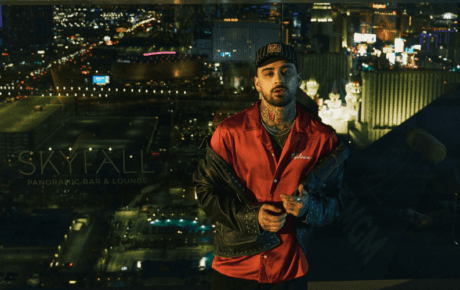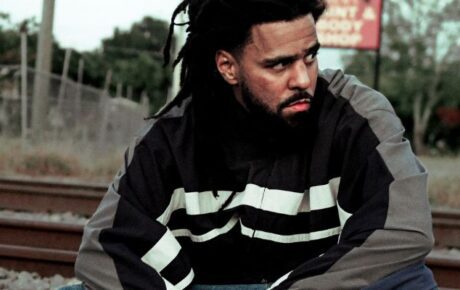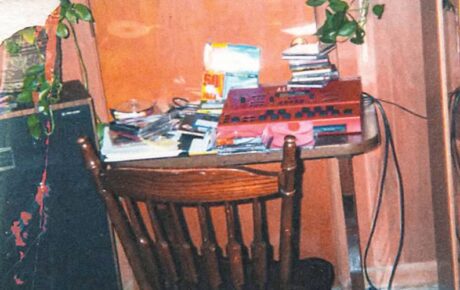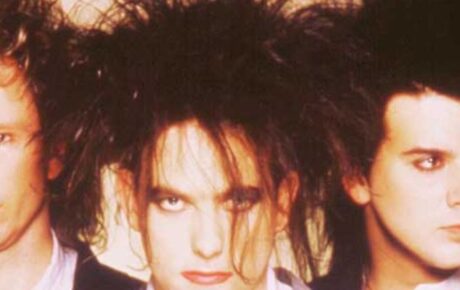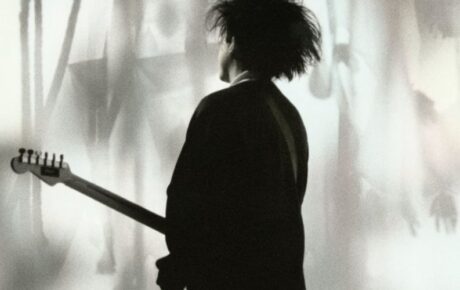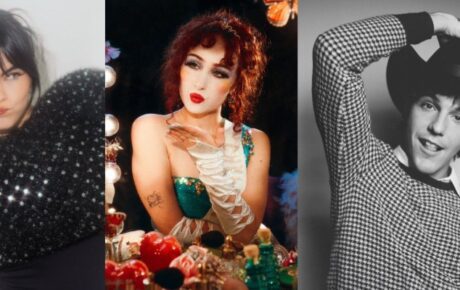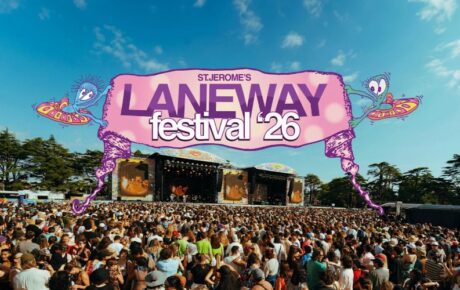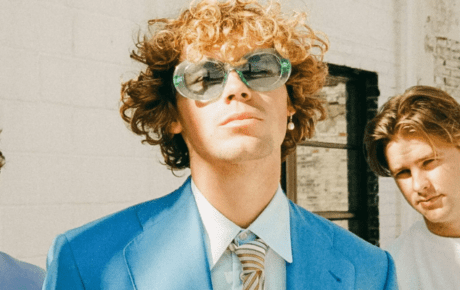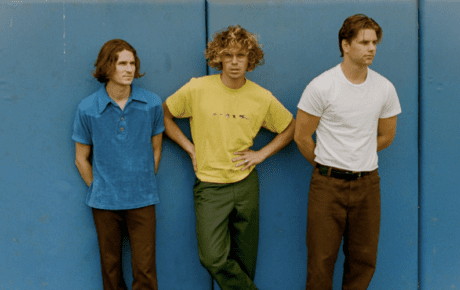The Appetite For Destruction super deluxe and Locked N’ Loaded box sets not only present Guns N’ Roses’ debut in a remastered version that practically punches you in the face, it includes a raft of demos and outtakes that give a closer look at how the legendary record came to be made. At the time Appetite For Destruction was originally released, on July 21, 1987, the group was interviewed about the making of the record.
“Welcome To The Jungle”
Axl: I consider the first song to be the most representative [of Guns N’ Roses]… I wrote the words in Seattle. It’s a big city but at the same time, it’s still a small city compared to LA and the things that you’re gonna learn. It seemed a lot more rural up there. I just wrote how LA looked to me. If someone comes to town and they want to find something, they can find whatever they want.
Izzy: It’s about Hollywood streets; true to life.
Slash: That’s the first song I had that Axl wrote lyrics to and helped me write. I had the riff part of it.
Axl: It came across, I think it was, on the third take. We did the whole album that way. Second or third take. That’s where spontaneity comes from. If you don’t get it by then you’ve lost the feel of it.
“It’s So Easy”
Duff: A song West [Arkeen] and myself wrote. It’s an account of a time me and him, and also the rest of the band, were kinda going through. We didn’t have money, but we had a lot of hangers-on and girls we could basically live off of… things were just too easy. There’s an emptiness, it’s so easy.
Axl: I sang in a low voice ’cause that fit the attitude of that song better. Wasn’t something I really thought about, I just started doing it. People ask why I don’t sing like that on a lot of songs and it’s only because I just sing whatever the song deserves. And it deserved being sung different than the other material. It’s a hard, tight, simple, punk rock song. When I went to England they said punk’s been dead for ten years. And I said, “It’s really weird, ’cause America doesn’t know that.”
“Nightrain”
Slash: ‘Nightrain’ is just like ‘… Jungle’. It’s very indicative of what the band’s all about. I remember when it first came together, we’d hitchhiked to the Rainbow and were walking down to the Troubadour and just started yelling ‘Nightrain’ ’cause we were drinking it…
Duff: We were living in the Gardener Street studio, this place where we had one little box of a room. We had no money but we could dig up a buck or two to go down to this liquor store. It happened to sell this great wine called Nightrain that would f__k you up for a dollar. Five dollars and you’d be gone. We lived off this stuff.
Axl: As far as the lyrics go, it’s more attitude and describing how you feel when you’re on it, rather than necessarily how you may be. You feel invincible.
“Out Ta Get Me”
Axl: The lyrics are saying, “I’ve always been in trouble but I’m still handling it.” Like every time you turn around, someone is trying to screw you over financially, or the cops are banging on your door and you didn’t do anything. It’s just being railroaded into something and trying to get out from underneath it. You know, parents, teachers, preachers… everybody. The last verse Slash and I put together as a joke, ’cause we were talking about how we get in fights sometimes, and how some people get pi__ed off that you’re drunk. But they’re the ones that bought the bottle of whiskey to get you drunk on. Some people say I got a chip on my shoulder.
Slash: It’s kinda hard to explain this so people can understand it. We were one of the most opposed bands. We had opposition from everywhere, the whole f__king time. Still. It’s not as bad now ’cause we’re signed and some people like the s__t we do. But we started out with so many people from so many different directions, trying to lash out at us. And trying to say Guns N’ Roses this and that, and don’t let them in here, and don’t let them do this, and don’t let them do that, and watch them, and this and that and the other.
“Mr. Brownstone”
Axl: When we moved out of our place on Fountain and La Cienega I was the last one to leave, and found this piece of yellow paper wadded up in the corner where Izzy’s and Steven’s room was. It had the lyrics to ‘… Brownstone’ on it. I read it and went, “This is great.” They said they had music for it and we ended up starting to rehearse this thing.
Slash: A lot of people have a misconception about this song. They think it’s about drugs. It’s not so much a statement about our drug habits; it’s more a statement about otherpeople’s drug habits. It’s a good little ditty that people can listen to and maybe think about what they’re doing. Try and get themselves in perspective.
Izzy: It can mean a million different things to a million different people. It’s like when you listen to a Zeppelin song, what do you think? I have all kinds of f__king wild ideas about what “Custard Pie” is about.
“Paradise City”
Duff: The chords to that song I wrote when I first moved to LA, when I didn’t know anybody and was kinda feeling a little down. So that kinda came out, like reaching for something, you know.
Slash: The best songs we do, they’re collaborations. The best way to do it is to have the whole band sit there and listen to everybody else’s ideas, and put it all together to make something that everybody enjoys playing.
Axl: The verses are more about being in the jungle, the chorus is like being back in the Midwest or somewhere. It reminds me of when I was a little kid and just looked up at the blue sky and went, “Wow, what is all this, it’s so big out there.” Everything was more innocent. There are parts of the song that have more of a down-home feel. And when I started putting the overlayers of my vocals (I put five tracks on there), it seemed that it came out like some Irish or Scottish heritage. One of the weird things is I had a feeling that it would go over good in Europe.
“My Michelle”
Axl: I know a girl named Michelle and she became a really good friend of the band’s and I was going out with her for a while. It’s a true story. Slash and some other members of the band said that’s kinda too heavy to say about poor, sweet Michelle: she’ll freak out. I’d written this nice sweet song about her, and then I looked at it and thought, “That really doesn’t touch any basis of reality,” so I put down an honest thing. It describes her life… I showed her the lyrics after about three weeks of debating, and she was so happy that someone didn’t paint just a pretty picture. She loves it. It was a real song to her, not something hokey.
“Think About You”
Izzy: It’s a quick love song about drugs, sex, Hollywood, and money.
“Sweet Child O’ Mine”
Axl: I had written this poem, reached a dead end with it, and put it on the shelf. Then Slash and Izzy got working together on the song and I came in, Izzy hit a rhythm, and all of sudden this poem popped into my head. It just all came together. A lot of rock bands are too f__king wimpy to have any sentiment or any emotion in any of their stuff unless they’re in pain. It’s the first positive love song I’ve ever written, but I never had anyone to write anything that positive about, I guess.
“You’re Crazy”
Slash: When I play that song I don’t even know what I’m playing. It’s just such a kick in the ass for me, so I run around. I try to concentrate on the music and keep kinda stationary, except on that song. I don’t play the same solo every night ’cause I’m not on the same wavelength as other nights.
“Anything Goes”
Axl: We [used to do it] so fast. Then wrote another version about our times at the old studio and we kept that for a while. But then when we came down to record it, we didn’t want to. But Tom [Zutaut, Geffen A&R man] was very adamant about wanting that song recorded, so we figured, “We’re gonna have to rewrite it.” In pre-production we came up with something we liked a lot better, but the verses weren’t written until the night we recorded the song.
“Rocket Queen”
Axl: I wrote this song for this girl who was gonna have a band and she was gonna call it Rocket Queen. She kinda kept me alive for a while. The last part of the song is my message to this person, or anybody else who can get something out of it. It’s like there’s hope and a friendship note at the end of the song. For that song, there was also something I tried to work out with various people – a recorded sex act. It was somewhat spontaneous but premeditated; something I wanted to put on the record.
Article originally published on uDiscoverMusic.com
Liked this article? Sign up to our UMUSIC newsletter to hear more from us!


